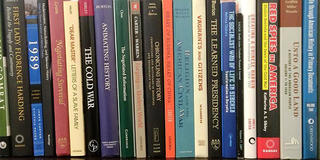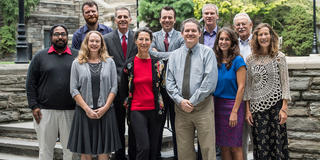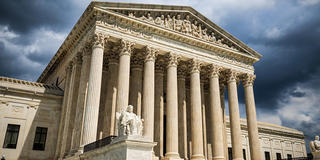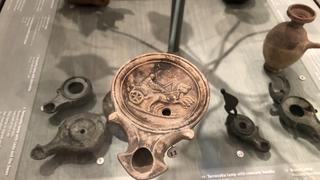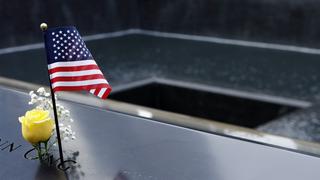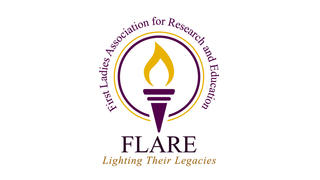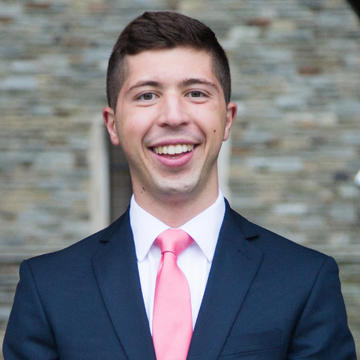
Department of History
The Department of History is dedicated to helping students think critically, write clearly and become historically aware, engaged citizens. Saint Joseph's ideal location in Philadelphia serves as a great foundation for learning about the history of America and how it has played a part in our dynamic and rapidly changing world.
The Department of History is a place to explore the world. By examining societies in the past — their character and conduct, successes and failures, strengths and weaknesses — students deepen their understanding of both the past and the world they live in today. In history courses, you will learn to see problems from multiple perspectives, write persuasively, engage in theory and ask pertinent questions to develop the core intellectual skills employers demand.
As a history student, you will work with globally engaged, award-winning faculty whose diverse curriculum seeks to develop a sense of enthusiasm and responsibility in all students. In their research, faculty in the history department question, interpret and build arguments about the past. As instructors, they provide you with outstanding training in the broader practices of research, analysis and documentation while introducing you to societies, cultures and time periods different from your own.
In addition, history can be added as a minor or second major. History pairs especially well with programs in education, area studies, international relations and political science, as well as programs in the Erivan K. Haub School of Business. Students will have the opportunity to prepare for successful careers in law, the private sector, public sector, non-profit, higher education or as authors, researchers, entrepreneurs and more. In addition, the skills acquired through the study of history prepare graduates to participate in a global economy by positioning them for jobs and professions that do not yet exist.
Commonly Asked Questions
If you don't see the information you're looking for below, please contact the department chair or your faculty advisor.
-
If you have declared a history major, the department chair will assign you an advisor. Their name should appear on DegreeWorks. If there is no advisor listed (or if the advisor is not current), please contact the department chair to ask about getting an advisor.
Once you know who your advisor is, you may contact them to ask about office hours or any other questions you may have. Email is usually the best way to contact them.
-
The history department receives notification regarding your AP exams and scores. If you earn a score of 4 or 5 on the AP U.S. History exam, you will typically receive credit for HIS 201 AND HIS 202 (a total of 2 classes and 6 credits). If you earn a 4 or 5 on the AP European History exam, you will typically receive credit for HIS 209, an upper-division history elective that counts toward the major. Other AP History tests may receive credit and are dealt with on a case-by-case basis.
-
Decisions about courses you transfer in are made by the Associate Dean in consultation with the department. Once your transferred courses appear in DegreeWorks, you should meet with your advisor to see how the transferred courses fit into your program. You can also ask your advisor if you have questions about the transfer equivalency that was assigned.
-
Speak with your current advisor if you have not already done so. If you wish to declare a history major, contact the department chair and get a "Declaration of Major" or "Change of Major" form from The Advising Support Center. You’ll need the chair’s signature on the form, and at that time you’ll also be assigned a faculty advisor from the history department.
-
Course caps are established for many different reasons and may not be exceeded except for extraordinary circumstances. Please contact the department chair if you believe you have such a circumstance.
-
Most majors and programs recommend that students take HIS 154 (Forging the Modern World) in their first or second year. However, there are circumstances that make it difficult to take the course in the recommended sequence. Don’t worry! Although it’s best taken early in your career at Saint Joseph's, HIS 154 is not a prerequisite to any other courses, so taking it later — even in your last semester — will not impede your progress toward graduation.
It’s also a good idea to monitor the sections that fit your schedule best because students will be dropping and adding courses for several weeks, and perhaps months, after registration begins. Space may become available.
-
Occasionally, a student may work with an individual faculty member through an independent study to undertake a course not usually offered by the department. The expectations and requirements for an independent study must be approved by the department chair and the dean’s office before the course is approved. If you are interested in exploring this option, speak with the faculty mentor you have in mind to determine if an independent study is feasible.
-
History seminars (HIS 470-479) are capstone courses for history majors and provide a forum for students to synthesize information from previous history courses, hone historical skills and produce a substantial research paper or its equivalent. Seminars are usually limited to 12 to 15 students.
Topics vary from semester to semester, and two are usually offered each term. Seminars are open to students in any major, but history majors receive preference. All history majors are required to take two seminars (ideally one in the junior year and one in the senior year).
-
Departmental Honors is a year-long project in which a student works closely with a faculty mentor, typically during their senior year, to produce an honors thesis that is usually between 50 and 100 pages long. There are minimum GPA requirements and other considerations to be considered for Departmental Honors — some have to do with the Honors Program and others with the history department.
If you're interested in this project, you should approach a potential faculty mentor as early as possible in the process, but no later than the spring of your junior year. If your project is approved, you will spend the summer between junior and senior year conducting research and refining your project. You will receive 6 credits (two classes) as part of the process; one, and sometimes both, can count as your seminar requirement toward the history major. If you need more information, please contact the Honors Program director and the department chair.
-
Yes. The history department encourages all students to participate in a study abroad program of some kind. Semester- and year-long opportunities are usually the most rewarding. There are also month-long summer programs and classes with study tour components during the regular school year.
It’s important to get approval for any courses taken abroad before you leave the U.S. How credits are transferred varies depending on the type of program. If you are going on a program approved by Saint Joseph's, most course transfer equivalencies have already been made. If it is a new program or course, decisions about transfer equivalencies are handled by the appropriate associate dean. Usually, if a course is offered abroad by a history department at another university, we will grant credit for a history course, but the details vary case by case. To find more information, please visit the Center for International Programs.
News & Announcements
I appreciate the way that history challenges me to think critically, to consider multiple points of view and dive beneath the surface. History professors pushed me to be more articulate and take on leadership both within and beyond the classroom. My history major has prepared me well for the future."
![Adam Mullin]() Adam Mullin '20
Adam Mullin '20history and theology double major
